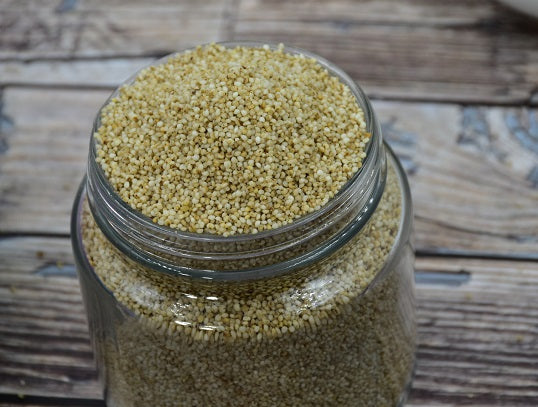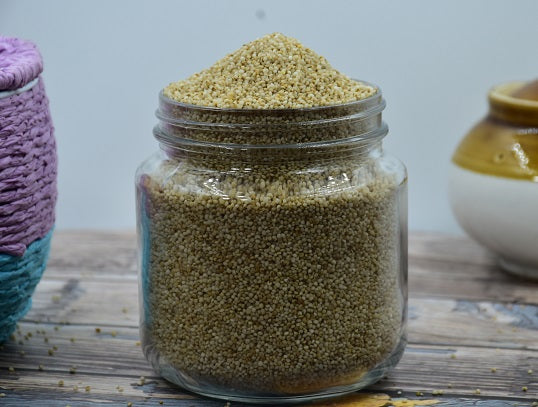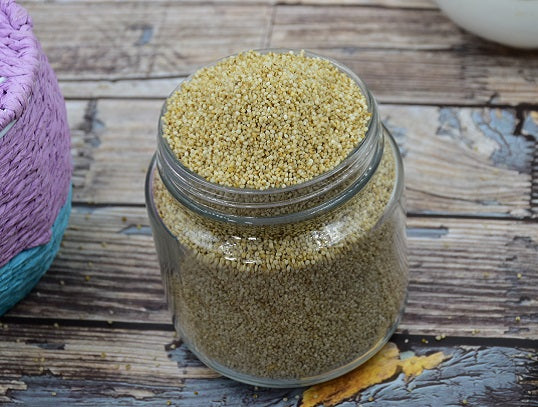Kodo Millet(varagu) - 250 gm
Kodo Millet(varagu) - 250 gm
Couldn't load pickup availability
Kodo millet(വരക്/केद्रव), scientifically known as Paspalum scrobiculatum, is one of the many millet varieties cultivated for its edible grains. It is a hardy, drought-tolerant crop known for its nutritional value and adaptability to various environmental conditions. Here are some key characteristics and information about kodo millet:
1. **Botanical Characteristics:** Kodo millet is an annual grass belonging to the Poaceae family. It typically grows to a height of about 90 to 150 centimeters. The plant has stout stems and produces small, rounded or oval-shaped grains.
2. **Cultivation:** Kodo millet is primarily cultivated in parts of India, Nepal, and other regions of Asia. It thrives in warm and tropical climates, making it suitable for areas with irregular rainfall patterns. Kodo millet is known for its short growing season, making it a preferred choice for farmers.
3. **Nutritional Value:** Kodo millet is a nutritious grain. It is rich in carbohydrates, dietary fiber, and protein, making it a valuable source of energy and nutrients. Additionally, kodo millet contains essential vitamins and minerals, including B vitamins (particularly niacin), iron, calcium, and magnesium.
4. **Culinary Uses:** Kodo millet is versatile in the kitchen and can be used in various culinary applications. It can be cooked and consumed as whole grains, similar to rice. Common dishes made from kodo millet include porridge, upma (a savory Indian breakfast dish), and rice substitutes. Its mild, nutty flavor makes it adaptable to a variety of recipes.
5. **Health Benefits:** Consuming kodo millet offers several health benefits. Its high fiber content promotes healthy digestion and can help manage weight. The grain is also gluten-free, making it suitable for individuals with gluten intolerance or celiac disease. Kodo millet is considered heart-healthy due to its potential to help regulate blood pressure and cholesterol levels.
6. **Sustainable Agriculture:** Kodo millet is known for its resilience and ability to grow in marginal lands with limited water resources. It is considered a sustainable crop, particularly in regions facing water scarcity or challenging growing conditions.
7. **Cultural Significance:** Kodo millet has cultural significance and is used in traditional cuisines and rituals in various parts of Asia. It is an integral part of the food heritage of some indigenous communities.
8. **Global Promotion:** Efforts are being made to promote the cultivation and consumption of kodo millet as part of diversified and balanced diets. Its nutritional benefits, adaptability, and sustainability are gaining recognition worldwide.
Kodo millet, with its nutritional value and adaptability to challenging growing conditions, plays an important role in providing food security and livelihoods for communities in regions where it is cultivated. Its versatility in culinary applications makes it a valuable addition to diets around the world, contributing to a more diverse and sustainable food system.
Share






